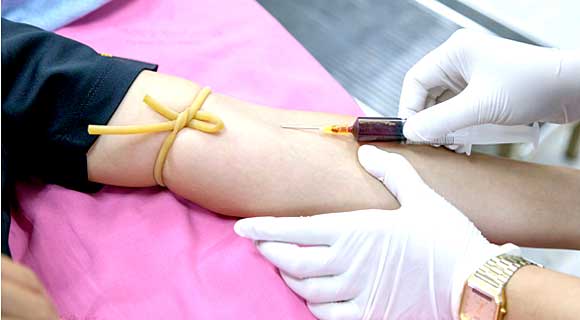Blood Testing: What the Future Holds
By Space Coast Daily // June 11, 2019

There is no question that blood tests are very important in diagnosing a number of illnesses and other irregularities in our health. Blood tests are commonly used to determine whether or not a person has a blood issue like anemia, as well as things like diabetes or some types of cancer.
While it’s already useful, scientists from all over the world are still on the lookout for ways to improve blood tests and enhance the diagnostic utility of their results.
As a result, a number of technologies have been developed due to the researchers’ diligence and efforts. This article discusses three ways blood testing has been improved by such breakthroughs.
Robot Does Blood Tests
Blood tests are among the most commonly administered procedures in hospitals and other health centers worldwide. As such, the results drawn from them are expected to be very influential to a large part of medical decisions made by practitioners.
Because of all that, there is a need for blood tests to be highly individualized and efficient. In 2018, a team of biomedical engineers from Rutgers University develops a portable device that includes an image-guided robot to draw blood samples from veins, a very detailed module for sample-handling, and an analyzer that is based on how the centrifuge works.
This device, when properly implemented, can be used to swiftly administer blood tests in hospitals and even in ambulances.
An Israeli company called Pixcell is also supportive of the idea of making blood tests fast and portable. They offer a device that can perform standard CBC tests in around five minutes, wherever the patient is.
Blood Tests with More Diagnostic Power
In 2014, startup Theranos made headlines when it successfully raised billions for its operations. They advertised a very cheap way of doing blood tests, and it proved promising to a lot of people: from business people to politicians and even media outlets.
However, there were also some who were not immediately enamoured. Some prospective investors asked for demonstrations on how the technology works, but the company refused, claiming that it was a trade secret. That was the beginning of a bitter downfall.
A Finnish company called Nightingale learned, at least in part, from the Theranos situation.
This company aims to make blood tests more useful in predicting a number of diseases including type 2 diabetes, which they aim to detect 10 years before symptoms start to show! This is truly quite a claim, but it’s not a sham because the technology for this has been extensively studied and they are published in over 150 publications worldwide.
Blood Tests Over Standard Biopsy
Cancer is among the most potent killers in the modern world. Early detection is still key to winning the battle against this disease. The current method of detecting cancers is the administration of tissue biopsy, however, this is a bit invasive and painful.
Fortunately, a Singapore-based company called Lucence Diagnostics now has the option to use blood tests to detect a handful of cancer types including late-stage lung, colon, pancreatic, breast, and nasopharyngeal. Besides being less painful and invasive, the procedure is also way faster than biopsies; and results can be delivered within the day!
Applying more of science in the medical field will only serve to benefit society. Hence, support for efforts to do research and develop products that improve the current systems should never dry up.
CLICK HERE FOR BREVARD COUNTY NEWS














